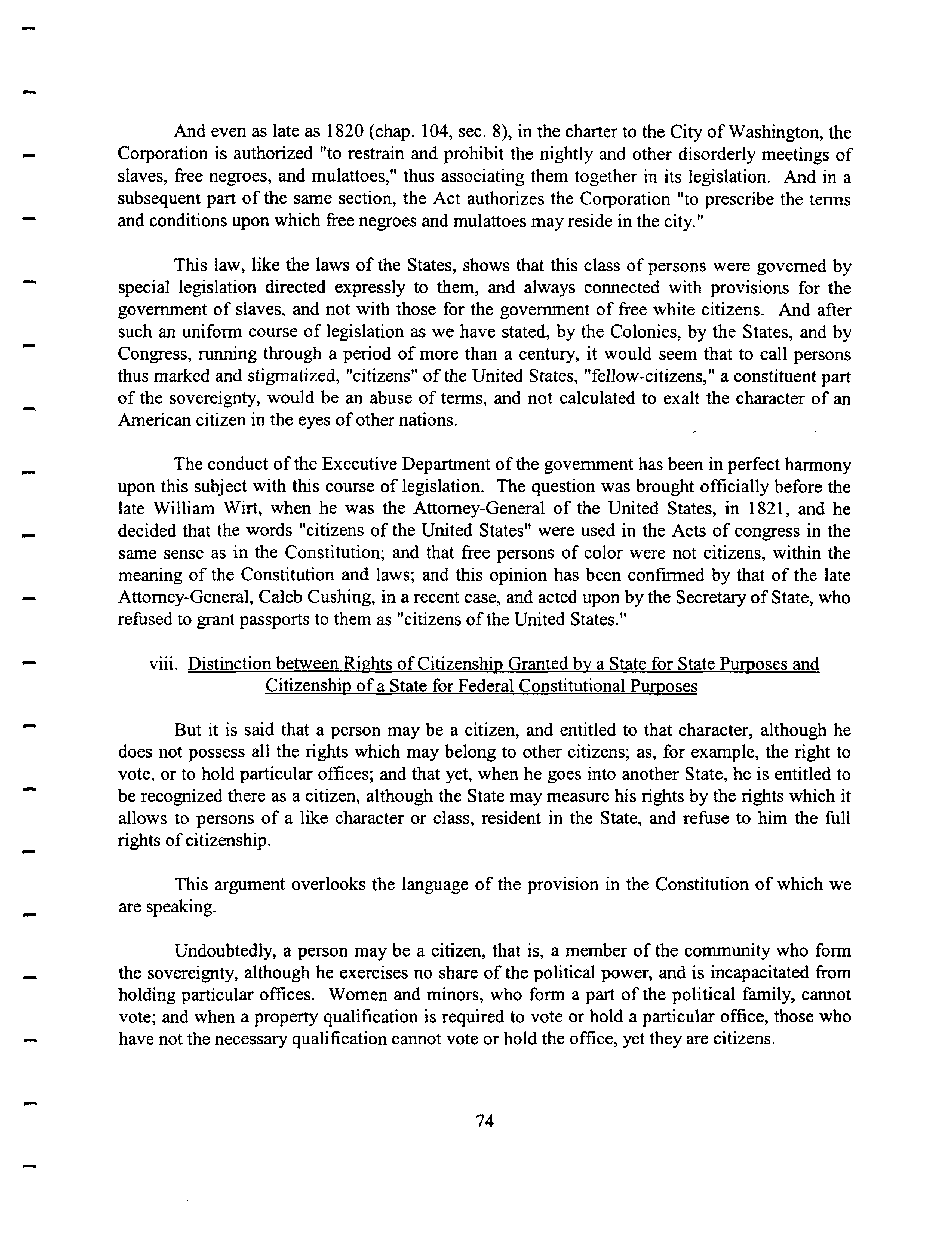|
And even as late as 1820 (chap. 104, sec. 8), in the charter to the City of Washington, the
Corporation is authorized "to restrain and prohibit the nightly and other disorderly meetings of
slaves, free negroes, and mulattoes," thus associating them together in its legislation. And in a
subsequent part of the same section, the Act authorizes the Corporation "to prescribe the terms
and conditions upon which free negroes and mulattoes may reside in the city."
This law, like the laws of the States, shows that this class of persons were governed by
special legislation directed expressly to them, and always connected with provisions for the
government of slaves, and not with those for the government of free white citizens. And after
such an uniform course of legislation as we have stated, by the Colonies, by the States, and by
Congress, running through a period of more than a century, it would seem that to call persons
thus marked and stigmatized, "citizens" of the United States, "fellow-citizens," a constituent part
of the sovereignty, would be an abuse of terms, and not calculated to exalt the character of an
American citizen in the eyes of other nations.
The conduct of the Executive Department of the government has been in perfect harmony
upon this subject with this course of legislation. The question was brought officially before the
late William Wirt, when he was the Attorney-General of the United States, in 1821, and he
decided that the words "citizens of the United States" were used in the Acts of congress in the
same sense as in the Constitution; and that free persons of color were not citizens, within the
meaning of the Constitution and laws; and this opinion has been confirmed by that of the late
Attorney-General, Caleb Gushing, in a recent case, and acted upon by the Secretary of State, who
refused to grant passports to them as "citizens of the United States."
viii. Distinction between Rights of Citizenship Granted by a State for State Purposes and
Citizenship of a State for Federal Constitutional Purposes
But it is said that a person may be a citizen, and entitled to that character, although he
does not possess all the rights which may belong to other citizens; as, for example, the right to
vote, or to hold particular offices; and that yet, when he goes into another State, he is entitled to
be recognized there as a citizen, although the State may measure his rights by the rights which it
allows to persons of a like character or class, resident in the State, and refuse to him the full
rights of citizenship.
This argument overlooks the language of the provision in the Constitution of which we
are speaking.
Undoubtedly, a person may be a citizen, that is, a member of the community who form
the sovereignty, although he exercises no share of the political power, and is incapacitated from
holding particular offices. Women and minors, who form a part of the political family, cannot
vote; and when a property qualification is required to vote or hold a particular office, those who
have not the necessary qualification cannot vote or hold the office, yet they are citizens.
74
�
|

